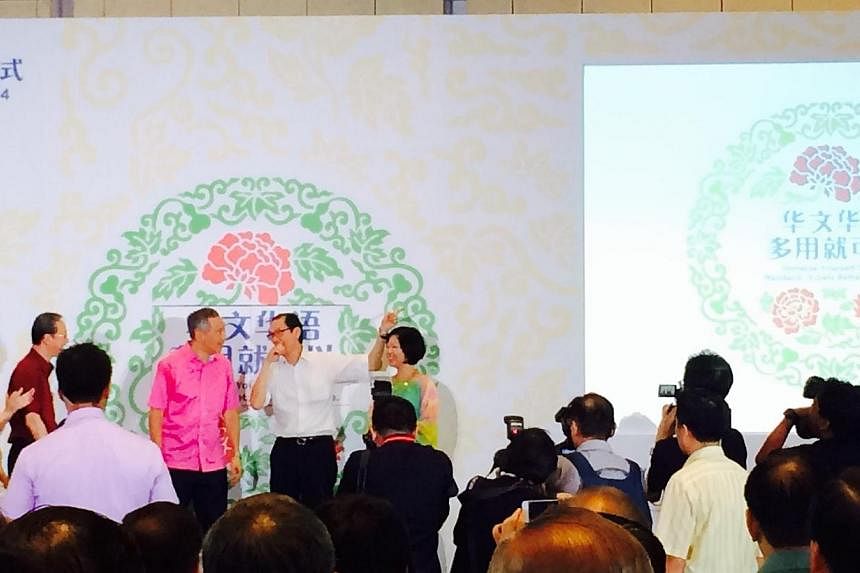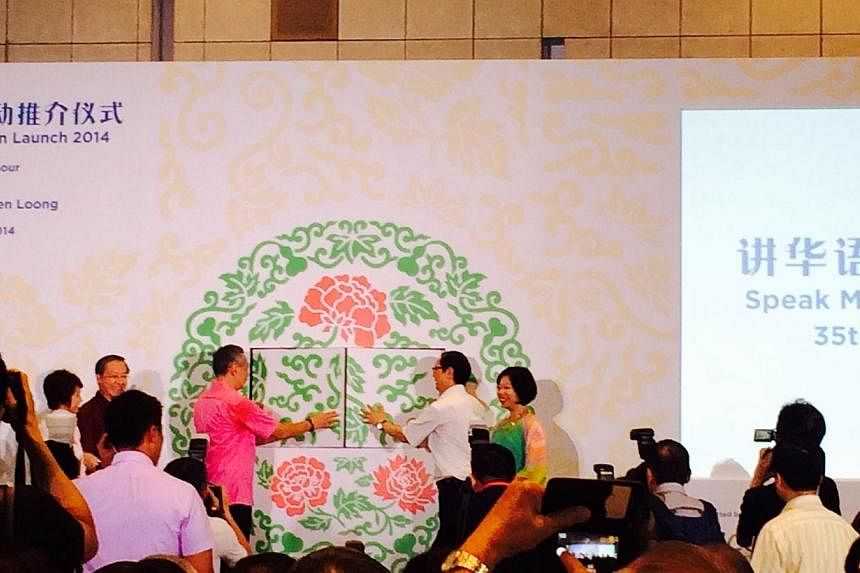While there is still room for dialect in Singapore, it is not pragmatic for dialects to be used more widely and mastered alongside English and Mandarin, said Prime Minister Lee Hsien Loong on Saturday, as he emphasised that Singapore's language policy remains sound.
Giving his speech in Mandarin at the launch of this year's Speak Mandarin Campaign, Mr Lee said he fully understands the desire for the young to learn dialects and protect their use of it as an important part of Chinese culture.
But when Singapore first introduced the bilingual policy, it did so after careful observation and the finding that it is very difficult for most people to master English, Mandarin and dialects at the same time.
"This principle has not changed, 35 years later," said Mr Lee.
Hong Kong is an example of the difficulty of mastering several languages at once. While the standard of Cantonese is very good there, people are not as fluent in Mandarin and even less so in English, he said.
The trade-off between emphasising bilingualism and sacrificing dialect has allowed Singapore to maintain good standards in English and Mandarin. Otherwise, Singaporeans' English standards and future opportunities might be affected, as might their Mandarin ability and the long-term standing of Mandarin in Singapore.
"This is a huge price to pay," said Mr Lee.
However, there is still room for dialect. News is reported in dialect on one radio channel here, and there are classes in dialects run by clan associations.
Mr Lee said the Government is also prepared to use dialects in special circumstances. It has prepared video clips in Hokkien, Teochew and Cantonese to explain the Pioneer Generation Package to seniors. The Government may also consider using dialects to promote other important policies like the new MediShield Life insurance scheme, said Mr Lee.
On the whole, he said, Singapore's "language policy remains sound".
The Speak Mandarin Campaign, which celebrates its 35th anniversary this year, has been successful, with most young Chinese Singaporeans able to speak and understand Mandarin, he added.
Singaporeans also appreciate the importance of Chinese, said Mr Lee. They have a strong desire to learn the language to connect with their roots and know their culture, as well as to prepare themselves for the rise of China.
While some feel it is too utilitarian to pursue Mandarin for economic gain rather than as an end in itself, Mr Lee said: "So long as you are interested in Mandarin, whatever the reason, I will encourage you to learn it."
Thanking Chinese teachers, local Chinese media and the clan associations for their efforts in promoting the language, Mr Lee said children should be given a hand to master two languages. This would help them connect to the global stage yet remain anchored to their culture.
He urged parents to speak Mandarin to their children at home and in their daily lives. Learning Mandarin should also be fun and make use of technology to raise interest and ability, he said.


